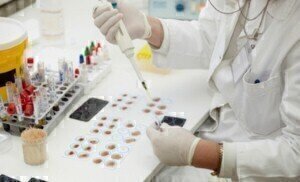Bioanalytical
Three-person babies possible in just 'two years'
Jun 04 2014
A review has found that scientists would be able to create babies using the DNA of three people in as little as two years, if the practice is made legal. The technique, which uses eggs from two females and the sperm of one man, would be used to prevent deadly mitochondrial diseases.
Currently, the changes to fertility regulations are being considered by government. So far, the UK fertility regulator has said there is no evidence that this would be unsafe, but called for more checks to be made.
The disease, which is passed only from mother to child, affects one in every 6,500 babies and means they will have insufficient energy to function, resulting in muscle weakness, blindness, heart failure and even death.
It occurs when the mitochondria in cells become damaged, meaning that by adding DNA from a woman who has healthy mitochondria, with that of the would-be parents, the child would not have the disease.
A scientific panel, assembled by the Human Fertilisation and Embryology Authority (HFEA), assessed two advanced forms of IVF using genetic material from three people.
In the procedure, donor DNA is taken from another female and implanted into a defective egg to stop the child from suffering from debilitating conditions such as muscular dystrophy.
The technique, developed by British scientists, is currently banned, but supporters want a change in the law saying it would allow couples the chance to have their own, genetically-related, healthy children. However, it has come under criticism that it could lead to the production of "designer children".
Professor Robin Lovell-Badge, from the Medical Research Council and a member of the scientific panel, told the BBC: "The direction of travel still suggests that it is all safe, but we don't know what's round the corner so we're being a little cautious."
The HFEA report called for more tests to be completed before the procedure could be carried out, which would include more detailed assessments of the efficiency of both techniques when using human eggs or embryos.
Digital Edition
Chromatography Today - Buyers' Guide 2022
October 2023
In This Edition Modern & Practical Applications - Accelerating ADC Development with Mass Spectrometry - Implementing High-Resolution Ion Mobility into Peptide Mapping Workflows Chromatogr...
View all digital editions
Events
Jan 20 2025 Amsterdam, Netherlands
Feb 03 2025 Dubai, UAE
Feb 05 2025 Guangzhou, China
Mar 01 2025 Boston, MA, USA
Mar 04 2025 Berlin, Germany














